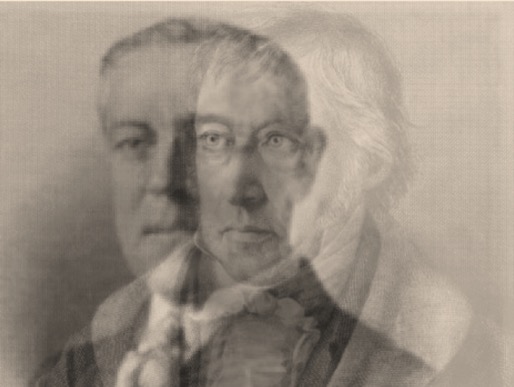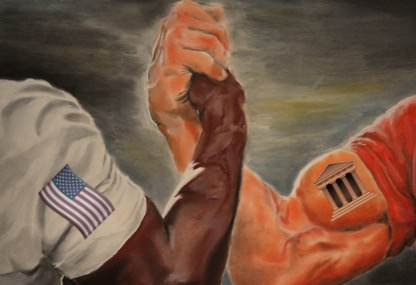How the Left Was Left

Old-time liberals would not recognize the doctrine that speaks in their name.
The changing character of the American Right is a favorite topic of liberal commentators and politicians. The arguments made on this score are invariably not just observations but evaluations: the Right is getting worse—a lot worse. The Right has become more radical and authoritarian, and today’s leaders of the Right are a big step down, on the liberal telling, from the allegedly sober and responsible leaders of the American Right in the past—including Presidents Nixon, Reagan, and Bushes, all of whom were reviled as fascists in their time.
It is true that American politics have changed considerably in the last few decades. But the changes have not been on the Right alone. However one would judge the overall state of American liberalism today, it is undeniable as an empirical matter that many intellectual and moral reflexes that prominently and reliably characterized the Left in the past are no longer evident. And these changes are just as worthy of our attention as any analysis of the American Right.
For most of the last two generations the American Left was disposed to be anti-war. To be sure, leaders of the Left could be brought to support the use of military force in cases of grave necessity, but the Left generally tended to think of war as a tragedy and a failure. Even when dealing with aggressive adversaries the Left preferred diplomacy, making every effort to avoid war through peaceable discussion and even conciliation and compromise. To yesterday’s Left, the inevitable cost of every war—namely, the large-scale loss of human life—was bad enough that war should be avoided if at all possible.
Today’s Left does not think this way. Witness the rush of practically every elected Democrat to support the Biden Administration’s proxy war in Ukraine. Over the last two years, no prominent liberal political leader has called for efforts at diplomacy for the sake of saving human lives. On the contrary, the war has been defended as a way of weakening Russia by killing as many Russians as possible at the cost of no American lives, only Ukrainian ones. Such an argument would have been regarded by liberals of the past as morally repugnant but has gone almost entirely unrebuked by today’s Left.
In the past, the American Left bitterly resented and vigorously denounced efforts to smear the critics of American foreign policy as witting or unwitting tools of the nation’s foreign adversaries. In the fifties, American liberals condemned Senator Joe McCarthy for making accusations that leading figures in the government and the military were communist agents of Soviet Russia. Later liberals deployed the term “McCarthyism” as a way of declaring out of bounds any suggestion that those who dissented from America’s Cold War policies were disloyal or unpatriotic.
Today’s Left has not only dropped any opposition to such methods of public argument. It in fact practices them with vigor. For large swathes of the Left, both among political leaders and commentators on public affairs, labels like “Putin’s puppet” and “Putin’s poodle” have become eagerly employed substitutes for serious argument with the contemporary critics of the present administration’s policy in Ukraine.
The Left used to be skeptical of America’s national security and intelligence agencies and opposed to their meddling in the nation’s domestic politics. But the rise of Donald Trump has showed us that the Left will greet as patriotic heroes any members of the “intelligence community” who leak or manufacture claims intended to smear Trump or his allies.
The American Left used to defend a broad interpretation of the freedom of speech and expression and would routinely seek to protect even speech that most people would regard as objectionable. A prominent cliché of the old-school liberal was “I disagree with what you say, but I would defend to the death your right to say it.” Nobody expects to hear a prominent liberal say any such thing anymore. In the late seventies the American Civil Liberties Union defended the constitutional right of American Nazis to stage a march in Skokie, Illinois, on the principle that the First Amendment freedoms sheltered unorthodox and even disreputable political speech. No institution on the Left would act in this way today.
In fact, today’s liberals hanker for the suppression of speech they don’t like. The Left’s new slogan is “hate speech is not free speech,” though there is no established constitutional category of “hate speech.” Today’s Left wants the government and large corporations to police speech about public issues with a view to controlling misinformation—even when the alleged “misinformation” is just a matter of opinion or debate.
In sum, today’s Left is inclined toward uncritical support of the government’s war policy, denunciation of critics of the government’s foreign policy as dupes or tools of foreign enemies, indifference to or support for intelligence and national security agencies trying to influence domestic politics, and a desire to have powerful institutions police speech about public issues. This amounts to a radical transformation of the American Left. Liberals of past generations would regard all these tendencies as characteristic of a movement with troubling authoritarian tendencies. And they would be right.
This account raises two important questions. In the first place, given the degree of these changes, does it even make sense to speak any more about “the Left and Right”? Has the Left, by embracing authoritarianism, become the Right? It would be a mistake to go that far. The Left has undergone a serious and alarming change in its political ethics, that is, in the tactics it is willing to use to succeed in its quest for power. But its fundamental aims, like those of the Right, remain unchanged.
The Left continues to be liberationist and equalitarian. It seeks a continual amelioration of the human condition by freeing people more and more from irrational and oppressive traditions and by achieving a greater degree of social and economic equality. The Right’s basic aims remain essentially preservationist or conservative. The Right wants to preserve, as much as possible in continually changing circumstances, the moral and political essentials of our civilizational inheritance, which it regards (unlike the Left) as a blessing and not a source of misery and injustice. And because constitutional self-government is a big part of that inheritance, it does not even make sense to call the American Right authoritarian.
In the second place, what is behind the contemporary Left’s authoritarian drift? The answer to this vital question can be found in the Left’s success in throwing off, and the Right’s failure in preserving, one of the nation’s defining civilizational traditions—biblical religion, and Christianity in particular. Many members of the older American Left were sincere Christians. And many more were, if not religious believers, at least sincere adherents of the basic ethical conceptions that had arisen in the West because of Christianity’s influence. All the moral limits the Left used to recognize—its reluctance to resort to war, its rejection of denunciation, manipulation, and intimidation in political discourse, its respect for the speech rights of even those with whom it disagreed—were intelligible in light of the biblical understanding of the dignity of the human person as created in the image and likeness of God. In this way, the Left was still living out, as recently as a few decades ago, the religion-influenced political culture that Alexis de Tocqueville had observed in 1830s America—and which he had warned was essential to American democracy’s not declining into tyranny.
The contemporary Left, moreover, has not only drifted away from Christianity but it has embraced a substitute religion: the belief in Progress, or that History is a rational force that inevitably lifts society to what the Left thinks are greater and greater heights of justice, freedom, and equality. By this change, the Left has discarded a religion that resisted authoritarianism and turned to one that encourages it. The Left’s belief in the historical inevitability of its triumph, far from fostering a benevolence born of serenity, instead causes a kind of psychological rigidity and fragility that enflames its authoritarian impulses. Because of its belief in progress, the Left must regard as illegitimate (and hence deserving of no sympathy or understanding) any effort of the Right to reopen questions or issues on which the Left has won past victories and which it accordingly believes to have been definitively and permanently settled by the judgment of History. And the Left must regard any actual success of the Right—in the realm of electoral politics or public policy—as a sign of History running in reverse. Such outcomes threaten to shatter the Left’s worldview and therefore must be resisted by every means available, even if those means are authoritarian in character.
Contrary to what the contemporary critics of the American Right contend, the most important change in modern American politics, and the real threat of authoritarianism, is on the Left and not the Right.
The American Mind presents a range of perspectives. Views are writers’ own and do not necessarily represent those of The Claremont Institute.
The American Mind is a publication of the Claremont Institute, a non-profit 501(c)(3) organization, dedicated to restoring the principles of the American Founding to their rightful, preeminent authority in our national life. Interested in supporting our work? Gifts to the Claremont Institute are tax-deductible.






